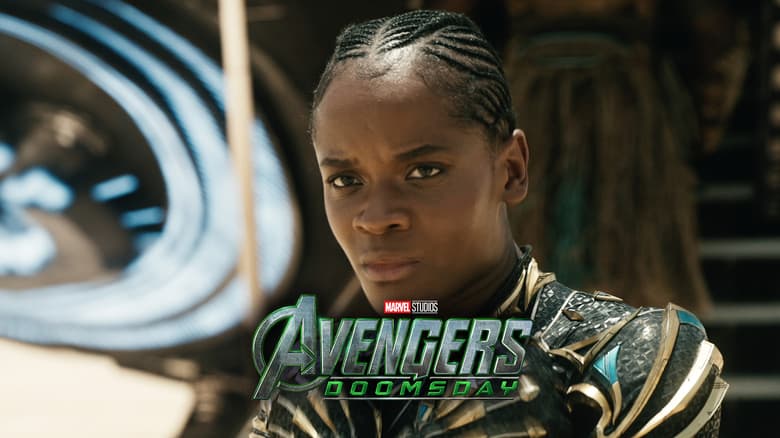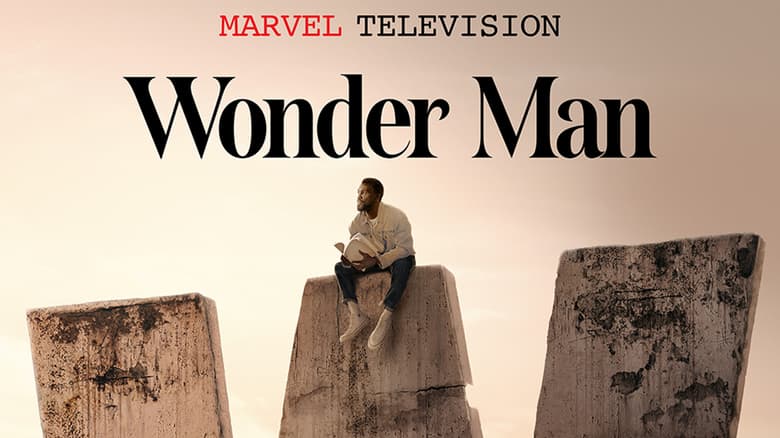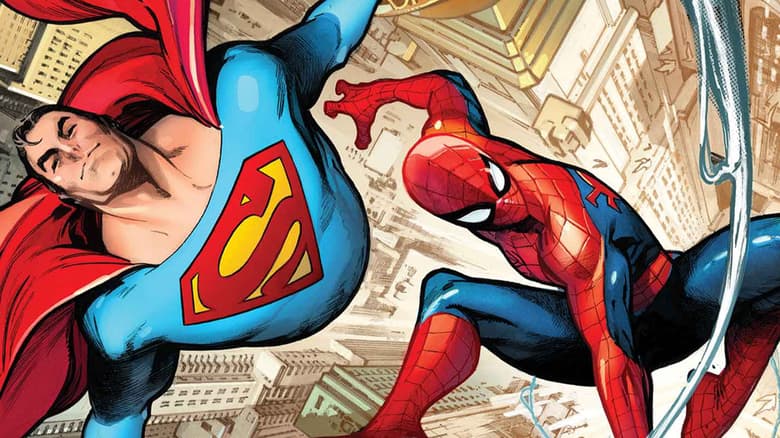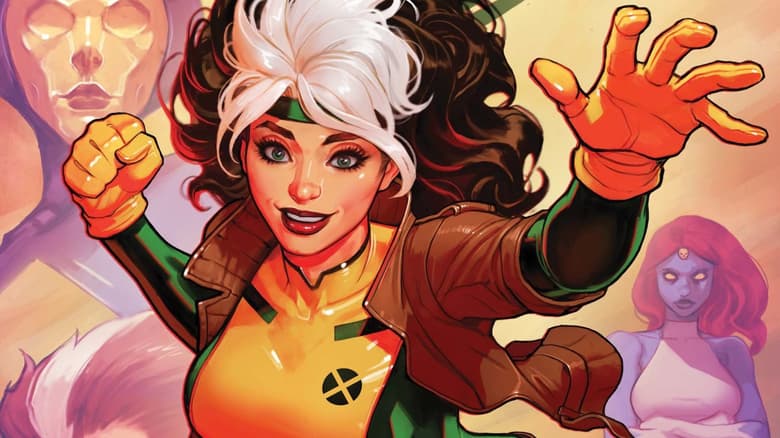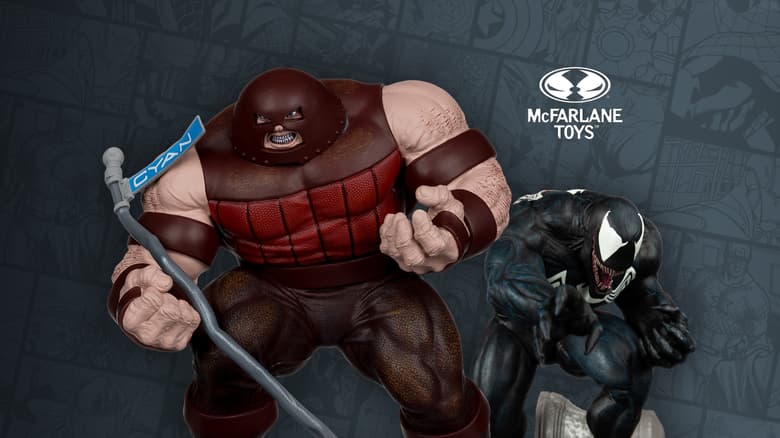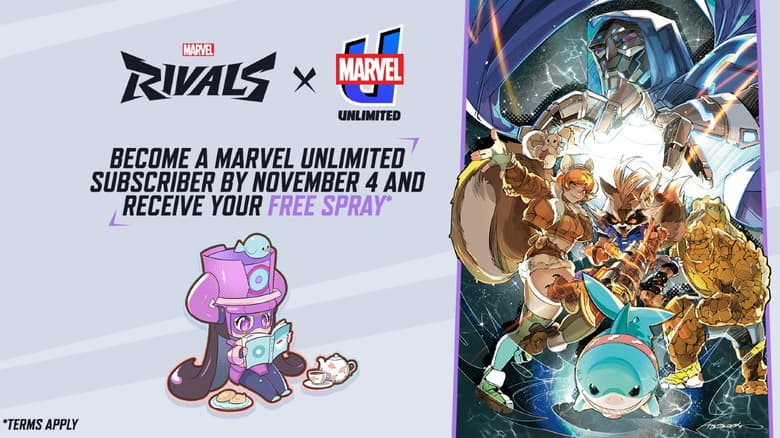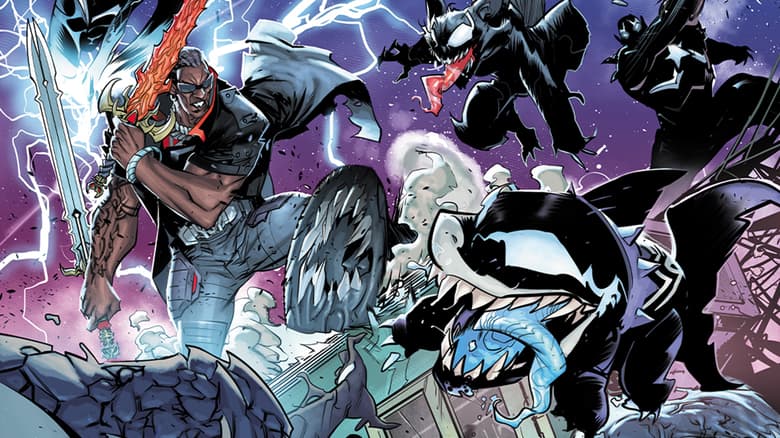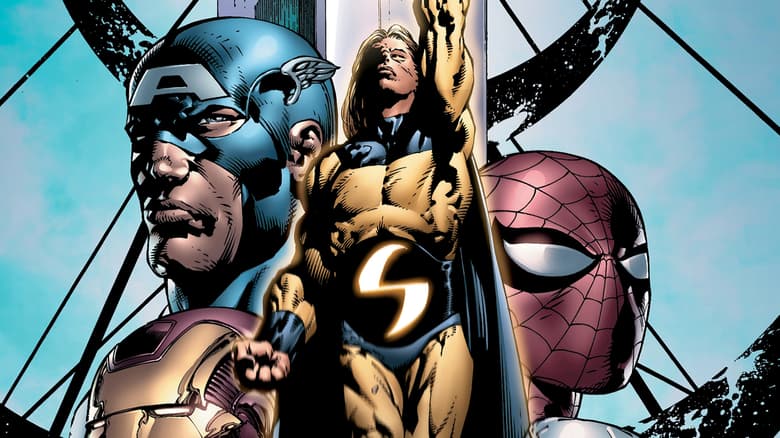Celebrating the End of an Era with 'Unbeatable Squirrel Girl' #50
Series writer Ryan North says goodbye to Marvel's most matchless mag.
On November 13, Doreen Green eats nuts and kicks butts for the final time in UNBEATABLE SQUIRREL GIRL!
Now, Squirrel Girl (the national treasure Super Hero) isn't going anywhere; she'll be as present as ever across the mighty Marvel Universe moving forward. But SQUIRREL GIRL (the comic book series) is going to that great big oak tree in the sky, for now. So, after UNBEATABLE SQUIRREL GIRL #50 hits your local comic shop, Doreen Green will be fine...OR WILL SHE!?
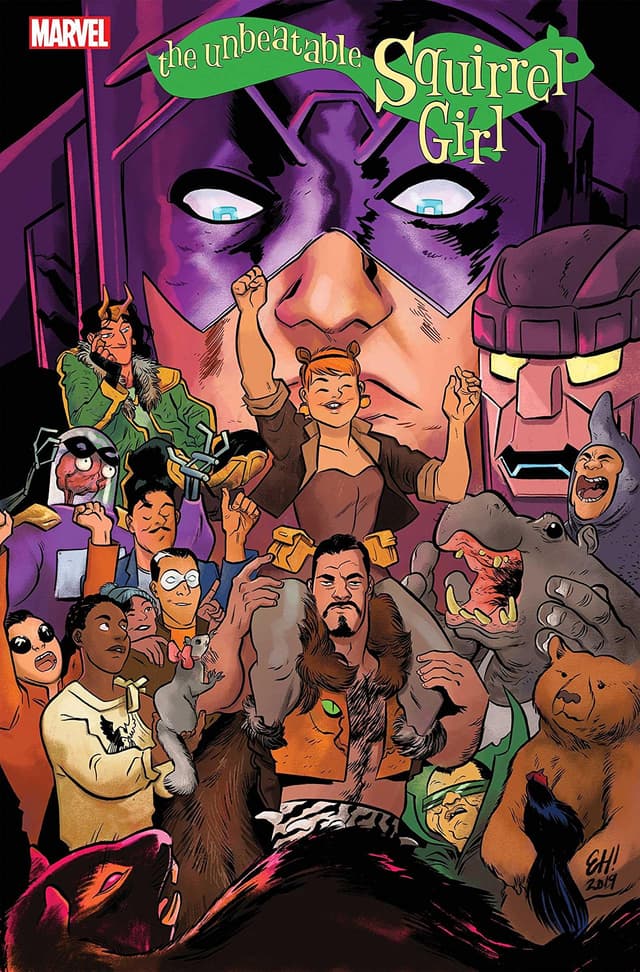
Because in USG #49 it really seemed like things WEREN’T fine and since #50 is the last issue maybe anything COULD happen and therefore maybe anything SHOULD happen!
After 58 issues, an original graphic novel, and more than four years of crafting Squirrel Girl into one of the most inimitable characters at the House of Ideas, the unbeatable Ryan North spoke with us about the experience, his collaborators, and winning every time alongside Doreen Green.
When you started out—when you were writing your very first issues of SQUIRREL GIRL—did you have a definition of success in mind for this series?
[Laughs] I wish I could say I did, it would make me sound like this really professional person. Like yes, here is my definition of success, and here are my deliverables over the next quarter.
I wanted to tell a fun story, and the thing with Squirrel Girl that I really like is that she’s a very rational person, right? She approaches problems with her brains. You know, the standard Super Hero meetings is that there's a misunderstanding and the two heroes fight each other before they realize they’re on the same side. And Squirrel Girl is the kind of person that’s like...well, let’s figure out why we’re fighting before we fight. Let’s have a conversation before we start punching each other. In real life, that’s not that big of a deal because most of us talk more than we end up in fist fights. I feel like that’s universal, but in a Super Hero context, it’s more revolutionary.
That sort of thing was what really interested me, and also made me really sad about the book ending—that you can’t copy and paste a Squirrel Girl story and make it a Spider-Man story, or a Human Torch story, or whatever, because these are different characters. And when a book ends like this, that’s the end of you doing that type of story.
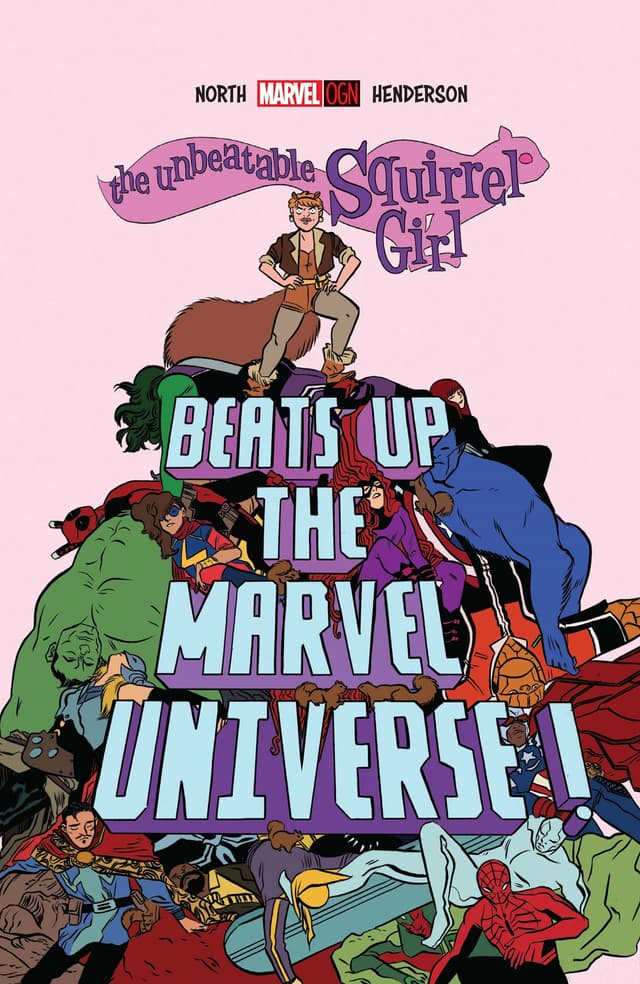
What would you say is the most meaningful way the character has evolved since you started writing the book?
When I first did the first issue of SQUIRREL GIRL, I made a couple of mistakes. One mistake was I put too many pages in it and Wil was like, “Oh, uh, we only need 20 pages of comics. Sorry, I should’ve told you that sooner.” And I was like, “I should’ve known! There’s always 20 pages in comic books!”
But the other thing, in the first issue she goes up against Kraven, and there’s a moment when she thinks, “How can I beat this guy?” And she throws him up in the air to buy some time, and as Kraven’s just going up and down again, she’s thinking, “Do I make squirrels go down his pants? Do I cover his face with squirrels? How can I beat Kraven the Hunter?” In the very first draft I sent in, she didn’t toss him in the air—she just went straight to squirrels in the pants. And Wil wrote back, “You know, I always saw Squirrel Girl as someone who helps people with their problems.” And it was like reading the answer guide in the back of a teachers’ book. Like, “Yes, yes, of course! That’s exactly who she is, that’s the core of the character right there!"
The core of Squirrel Girl now is this empathy and this kindness that she has, this willingness to look at the world from other people’s point of views, to walk in someone else’s shoes and see what that feels like. This is someone who is smart and clever and creative, and has these out of the box solutions, but she’s also really empathic and caring. I feel like that, of all things, is now probably what we think about when we think of Squirrel Girl. Yes, she is this smart and caring person who will try to solve your problems. Which is a super-heroic thing of her. But deciding not to hate someone, deciding to do better—I think that’s inspirational.
You've worked alongside Erica Henderson, Derek Charm, Rico Renzi, Wil Moss, Sarah Brunstad, and so many other amazing collaborators across this run. What can you say to the team that's been built over the course of these years?
It’s unusual to see a book with this consistency of the team. With Erica doing the first 31 issues and Derek doing the others, Wil being the editor from the beginning, Rico doing the colors from day one, and me writing the whole thing. It really does make it feel like a family book. We have readers who send us letters and we’ve been getting their letters for five years. Watching people grow up—children who have learned to read on SQUIRREL GIRL—and now they're reading it themselves. There's a sense of family there, and I’m constantly marveling at it.
Wil assembled this team of people that he thought would work well together, that he thought would make a good comic. And I didn’t know Erica going into it—she was a complete stranger—and now at the end of this, we’re all really good friends in real life. I’m not sure if that always happens, but it feels like a miracle that randomly people who were assigned to work together really clicked and really hit it off.
Both Erica and me, and Derek and me—very early on we reached a point where the script that I write is not set in stone; it’s a starting point. And Erica and Derek both add panels, pull things apart, mush them together, whatever they want... They’ve all been such a team and family that it’s hard to imagine what the book would look like if that wasn’t the case.
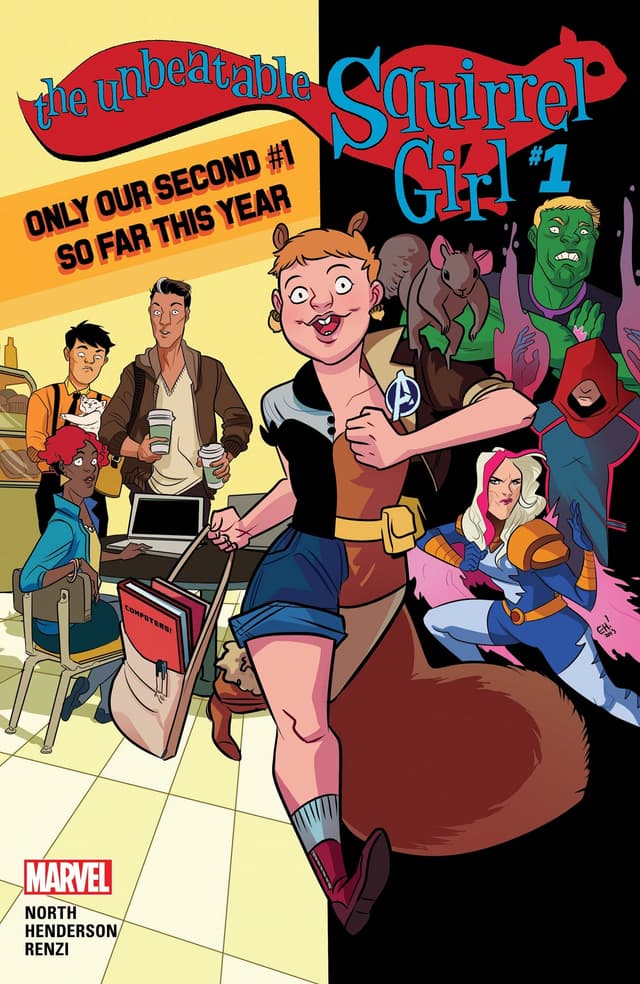
One of the hallmarks of this book has always been the footnotes at the bottom of each page. If you were to look at this entire series and experience as a single text, what footnote would you write for it?
Looking at all 58 issues as a single text, the footnotes I'd put on that… Gosh, you’re looking at over five years of my life doing this book. And that’s five years of learning, growing, and exploring. I think the main part of it—both for real life and inside the comics—is how much room there is to try out new things, to become a different, better person.
You’re writing in a shared Marvel Universe, and that means everything is changing, everything is moving around, and it would seem like that would be a challenge, right? You want to use a certain character but that character is dead or in space, and you go, “Oh no, I wish I could use that person!” But that has always worked out so well for us. We did an arc where Squirrel Girl was going to team up with Doctor Strange, the Sorcerer Supreme, and they were going to go fight this bad guy. And I got the note that Loki was actually going to be the new Sorcerer Supreme when this book came out. And I was like, “Loki! That’s even better! I love Loki. There’s a relationship with Loki and we can use that.”
So I guess this is a long way to give a short answer—that you don’t know what you’re going to find when you go exploring, and that's the fun of it.
Pre-order UNBEATABLE SQUIRREL GIRL #50 at your local comic shop today, then celebrate the end of an era when it hits shelves on November 13!
The Daily Bugle
Can’t-miss news and updates from across the Marvel Universe!
